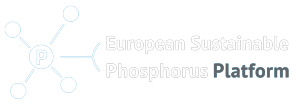2 February 2022, 14h – 17h CET
The webinar will discuss:
i) relationships between draw-down of soil P and crop productivity
ii) relationships between draw-down of soil P and diffuse P losses from agricultural soils
This ESPP webinar will follow on from the SPA (US) webinar “A Legacy of Phosphorus”, 30th September 2021, 18h-19h30 CEST and from the Frontiers in Earth Science special on ‘Legacy Phosphorus’ summarised in ESPP eNews n°56
A SCOPE Newsletter Special Issue will summarise this ESPP webinar and will also include selected further abstracts submitted as well as a c. 20 relevant recent scientific publications.
Online. Free. Register here
Programme
14h00 – 14h30 (4 x 5 min + 10 mins discussion)
Opening: What do we mean by “legacy P”?
Chair: Christiana Staudinger, Jakob Santner, University of Natural Resources and Life Sciences, Austria
- Phil Haygarth, Lancaster University, UK - European perspective
- Andrew Sharpley, University of Arkansas, US - Phosphorus Legacies: Redefining the scientific, economic, and policy nexus to mitigate future water resource impairment
- Achim Dobermann, IFA (International Fertilizer Association) – Industry perspective
- Rich McDowell, AgResearch: New Zealand perspective: predicting soil P changes if fertiliser use is stopped, agronomic and environmental targets
14h30 – 15h00 (5 x 4 min + 10 mins discussion)
Europe: impacts of drawing down legacy P on crop yields (long-term trials)
Chair: Jakob Santner, University of Natural Resources and Life Sciences, Austria
- Inge Regelink, Wageningen University Research, Netherlands: 17 years trials on grassland in The Netherlands
- Debby Van Rotterdam, Nutrient Management Institute, Netherlands - Legacy soil P: a mass balance approach in a 10- year mining experiment
- Agnieszka Rutkowska, State Research Institute for Soil Science and Plant Cultivation, Poland - Long term effect of unbalanced fertilization with phosphorus and nitrogen – a case study for Poland
- Sabina Braun, Swedish University for Agricultural Sciences, Sweden - Grain yields and soil P changes from >50 years of soil fertility field experiments
- Vladimir Nosov, PhosAgro, Russia - Sustainable crop production: decreasing phosphorus rates or splitting phosphorus application?
15h00 – 15h40 (8 x 3 min + 15 mins discussion)
Worldwide: legacy P, draw down, soil phosphorus
Chair: Steve Hallam, International Fertiliser Society
- Yu Gu, Wageningen University Research, Netherlands - Potential of soil phosphorus saturation index for evaluating crop yield and runoff risks
- Amy Shober, University of Delaware, US - Corn and soybean yield across continuum of soil test phosphorus concentrations under long-term drawdown
- Emileigh Lucas – University of Maryland, US - Lessons from manure-applied “legacy-P” drawdown in the mid-Atlantic coastal plain, USA
- Andrew Margenot, University of Illinois, US - Legacy phosphorus drawdown at decadal to centennial scales in the U.S. Maize Belt
- Tiequan Zhang, Harrow R&D Centre Agi-Food Canada - Legacy phosphorus in soils sustained crop yields with reduced soil phosphorus loss for 14 years
- Barbara Cade-Menun, Agriculture and Agri-Food Canada - Soil phosphorus concentrations and wheat yields in a long-term fertilization study in Saskatchewan
- Paulo Pavinato, University of Sao Paulo, Brazil - Legacy P availability in Brazilian tropical soils for sustainable crop production
15h40 – 15h50 – break
15h50 – 16h20 (3 x 5 min, 10 min questions)
How does legacy P or draw-down impact losses to surface waters?
Chair: Ludwig Hermann, ESPP & Proman Consulting
- Victoria Barcala, Deltares, The Netherlands: Processes controlling the flux of legacy phosphorus to surface waters at the farm scale
- Juliane Hirte, Agroscope, Switzerland - Reducing legacy soil phosphorus to tolerable levels for surface waters: A case study from Switzerland
- Sarah Stackpoole, US Geological Survey - Legacy and contemporary phosphorus contributions influence river water quality trends in the conterminous United States
16h20 – 17h00 (8 x 2 minutes, 20 mins discussion)
Conclusions from panel of experts
Chair: Steve Hallam, International Fertiliser Society
Panellists are invited to draw conclusions (and future perspectives), 2 min each, and also to monitor and animate the discussion in the Chat and in the above questions/discussion sessions.
- Jim Elser
- Tiffanie Stephani, Yara and Fertilisers Europe
- Luke Gatiboni
- Marzena Smol
- Antonio Delgado
- Kari Ylivainio
- Leonardus Vergutz
The programme is available in pdf here.
